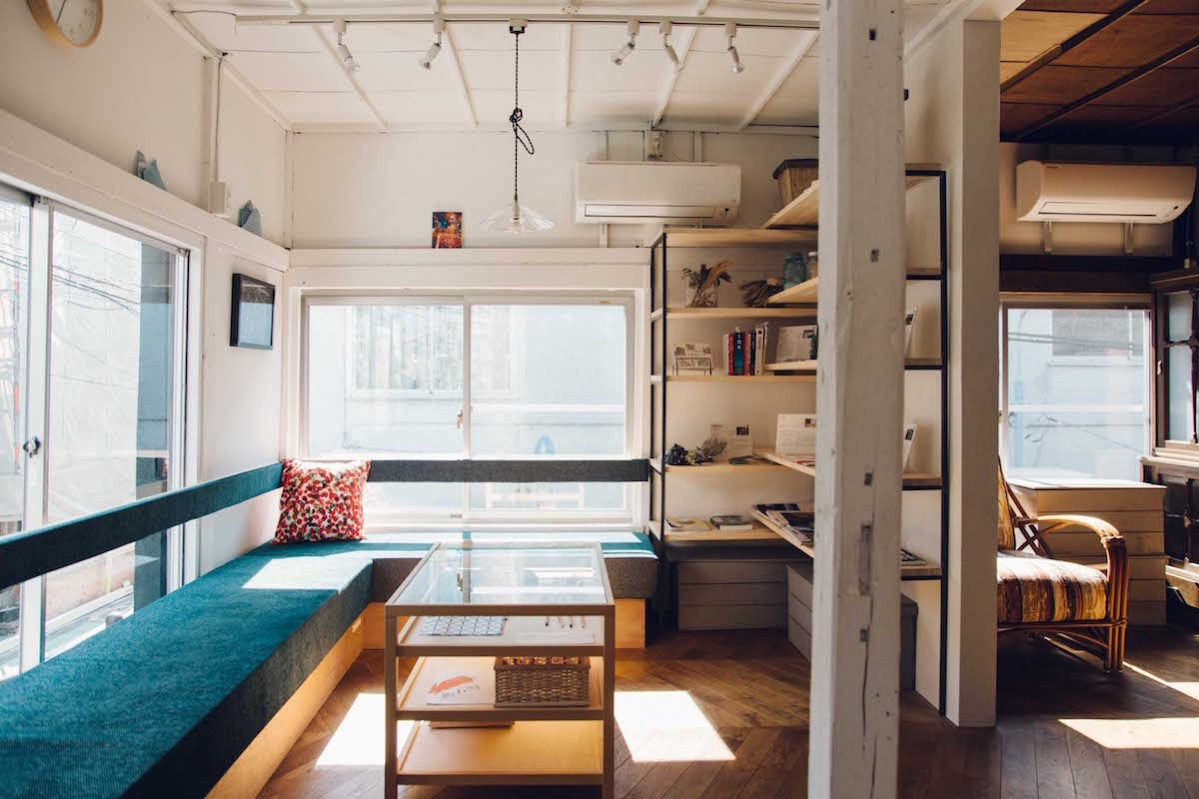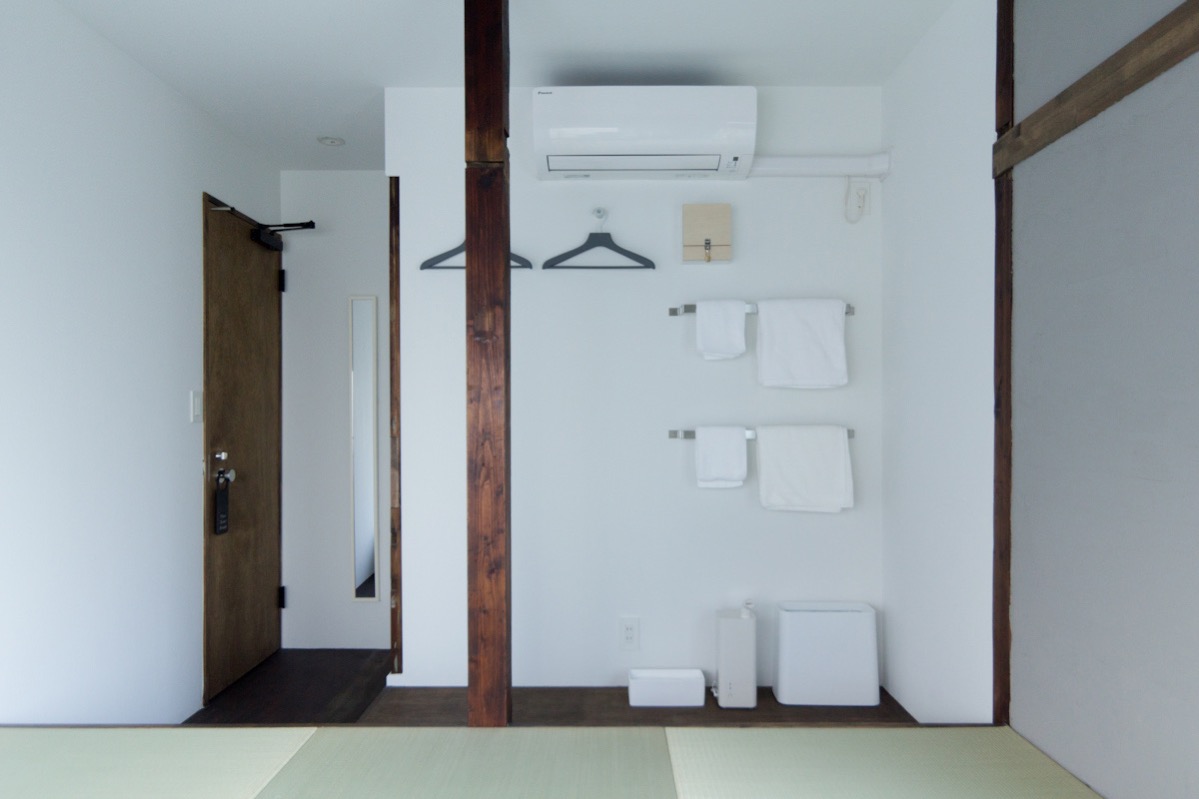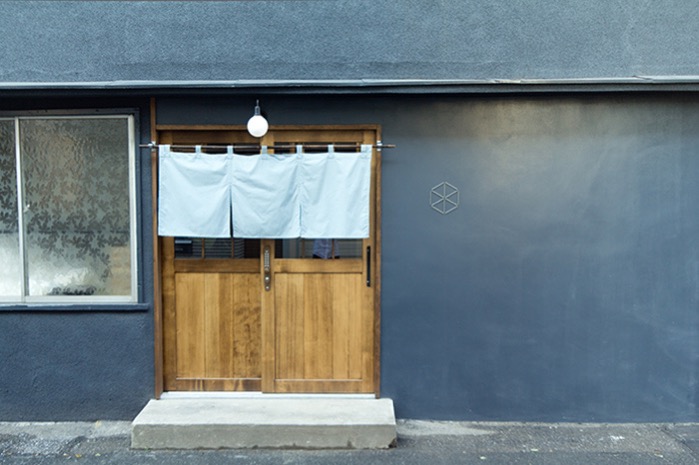
在京都生活了好幾年,近來卻有點厭倦了。太多的觀光客,帶來了太多為觀光客而備的設施,酒店、旅館、很多標榜著展現京都風情的餐廳酒吧(而它們通常只是將給標籤化的事物展現出來而已),旅遊區藥粧店連二連三,還有冒著京都之名而來的國際品牌,京都原來有趣的社區人文風景,變得越來越薄弱。
在京都生活了好幾年,近來卻有點厭倦了。太多的觀光客,帶來了太多為觀光客而備的設施,酒店、旅館、很多標榜著展現京都風情的餐廳酒吧(而它們通常只是將給標籤化的事物展現出來而已),旅遊區藥粧店連二連三,還有冒著京都之名而來的國際品牌,京都原來有趣的社區人文風景,變得越來越薄弱。

HAGI Studio覺得東京遇到同樣的狀況,奧運將至,酒店越建越多,量多了滿足了旅客的需求,卻同時造成了社區的文化傷害。而對於居民來說,酒店等觀光設施的增加,如同把自己的社區向旅客拱手相讓。有甚麼方法,可能讓旅客體驗到真正的社區生活,讓社區居民們能與旅客融而為一、多交流相處呢?旅館計劃Hanare便是HAGI Studio給予這問題的答案。
Hanare位於東京的谷中,酒店裡設有留宿的房間、澡堂、餐廳、紀念品店、租借單車服務,及文化體驗中心。聽來跟不少酒店都大同小異,不過其不同之處,在於Hanare的設施並不設在同一幢建築裡,正確點說,設施全散落在社區之內,由不同的人經營——Hanare將整個社區化為酒店了。
居於Hanare的客房內,早上聽上附的寺廟的晨鐘,於同樣由HAGI Studio經營過的餐廳用過早餐,旅客便可到鄰近的單車租借店借用單車,展開日常的旅程。又或者可以先到附近的Com So Koya學習一下傳統的日本樂器尺八,或往Light and Place拍一張罕有的濕版人像照作紀念,晚上逛累了,用Hanare給予的澡堂券,到區內選一家澡堂泡浴。Hanare可說是HAGI Studio與居民,共同營運的酒店,將旅客帶到地域之內,體驗最尋常的社區生活。
旅客到訪,本為看當地文化,若因旅遊業發展太過蓬勃,失去了城市原來的特色,實在可惜。Hanare是社區面對著旅遊文化衝擊的其中一個對策,但真正能夠抵擋那狂潮的,或許只能靠居民們維護本地文化的堅強心志。

After residing in Kyoto for a few years, I started to feel a bit tired of it. Driven by the growing number of tourists, the city keeps building facilities like hotels, ryokan, and Kyoto-themed restaurants and bars. These so-called Kyoto themed places simply borrow the most superficial elements of the city’s stereotypes without demonstrating any of its genuine charisma. There are also plenty of pharmacy selling medicines and beauty products, as well as international brands that set up their Kyoto branch hoping to make money from the tourists. The most authentic face of the ancient city is getting overshadowed.
HAGI Studio saw similar issues in Tokyo — as the Olympic Games are fast approaching, more and more hotels have sprung up in the city to accommodate the upcoming surge of tourists. This has brought harm to the local culture as well as the way of living. To the locals, the influx of infrastructure for tourism means compromising their original style of living, so how can they make a balance between tourism and local life? To respond to the need for allowing tourists to experience the local culture while letting the locals interact and co-exist with the travelers, HAGI Studio came up with an answer by opening the Hotel Hanare.
Located in the Yanaka area in Tokyo, Hotel Hanare provides the guests with rooms, sento (baths), restaurants, souvenir shops, bicycle rental, and cultural experiences. This may sound more or less like a conventional hotel, but the difference lies in the fact that these facilities are not set inside the hotel building. They are, instead, scattered around the neighborhood and operated by various people. Hotel Hanare simply turned the entire neighborhood into a hotel.
Staying in Hotel Hanare, the guests would be awakened by the morning bells ringing from the nearby temple, before visiting the restaurant run by HAGI Studio for breakfast. Afterward, it is time to head to the bike shop in the neighborhood to rent a bike to ride around for the day. For music lovers, they can go to Com So Koya to learn how to play shakuhachi, the traditional bamboo flute. Feeling a little nostalgic? Light and Place is where you can take a portrait using the old collodion process. After a long tiring day, guests can use the complimentary sento ticket to have a nice hot bath in any of the sentos in the neighborhood. Hanare is in a sense a hotel cooperated with the local residents. Guests are invited to actually experience the everyday life of the locals.
Travelling is to experience the local culture; it would be such a shame if tourism develops to a point where the authenticity of the city is negatively affected. Hotel Hanare could well be one of the solutions to the adverse impact of tourism. But at the end of the day, perhaps the real resistance to the potential damage brought by tourists still has to rely on the locals’ determination in protecting their own culture.
